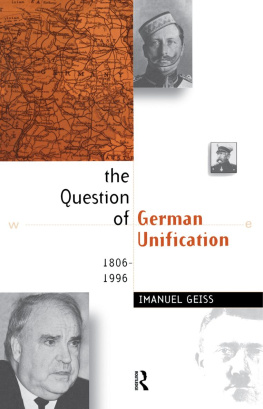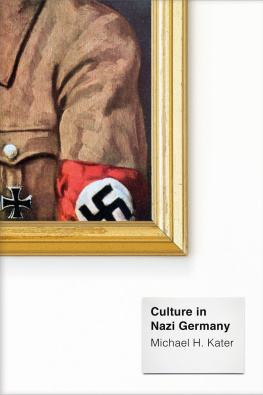Contents

Originally published in German in 2017 as Das Deutsche Krokodil by
Rowohlt Verlag GmbH, Reinbek bei Hamburg
First published in English in 2021 by DAS Editions.
A publishing imprint of Afropolitan Digital Limited
Salatin House 19 Cedar Road Sutton, Surrey SM2 5DA UK
Copyright 2017 Rowohlt Verlag GmbH
English translation copyright 2021 Ruth Ahmedzai Kemp
The views expressed in this memoir are solely those of the author.
While some names have been changed to protect the identity of certain parties, all the events in this memoir are true to the best of the authors memory.
The moral right of Ijoma Mangold to be identified as the author of this work has been asserted in accordance with the Copyright, Design and Patents Act, 1988.
All rights reserved. No part of this book may be reproduced, stored in a retrieval system or transmitted in any form or by any means, electronic, mechanical, photocopying or otherwise, without prior written permission.
A CIP catalogue record for this book is available from the British library.
ISBN: 978-1-8382215-0-8
eISBN: 978-1-8382215-1-5
Ayor font copyright 2021 Duah Francis Boafo.
AYOR was inspired by NSIBIDI, a system of symbols indigenous to what is now southeastern Nigeria.
The translation of this work has been supported by a grant from the Goethe-Institut.

This book has been selected to receive financial assistance from English PENs PEN Translates programme, supported by Arts Council England. English PEN exists to promote literature and our understanding of it, to uphold writers freedoms around the world, to campaign against the persecution and imprisonment of writers for stating their views, and to promote the friendly co-operation of writers and the free exchange of ideas.
www.englishpen.org


Praise for The German Crocodile
Much more than a personal story, this is a portrait of our society and epoch in miniature. (...) A mixture of reportage and Bildungsroman that simply had to be written.
Kristina Maidt-Zinke, Sddeutsche Zeitung
It is, among many other things, the most beautiful and moving ode to a mother that you can imagine.
Jan Wiele, Frankfurter Allgemeine Zeitung
The rise of the black Reich-Ranicki (...) A book that will make you laugh and cry (...) A must-read!
Alexander von Schnburg, Bild
Smart, reflective (...) It reads like literary fiction: I was gripped, often moved to emotion.
Claudius Seidl, Frankfurter Allgemeine Sonntagszeitung

For my mother
Contents
Madness, madness. Everywhere, madness!
Hans Sachs in The Master-Singers of Nuremberg
PART I
The Boy
Whenever the boy answers the phone, he always gives his full name. Some people who call to speak to his mother find this amusing and mimic him, as though the boys naively narcissistic way of answering the phone merited an affectionate echo. When he pronounces his full name, it comes to nine syllables. The sounds and the rhythm pulse like a wave. But thats not the reason why he answers with such a tongue twister; no, this is his attempt to mitigate his fate. His middle name is his hope of tempering the exoticism of his first name: Ijoma Alexander Mangold.
When you look at it like this, its actually 2-1 to Germany. But only when he manages to remind the person hes talking to of the existence of his middle name.
For all his attempts, it doesnt really work. Although his middle name appears on official documents like sports certificates, it isnt really given the same weight as his first name. The grown-ups clearly cant be dissuaded from the assumption that Ijoma is the name that best describes the boy, even though they always trip up when they say it. The way people stumble over his name is a source of grave embarrassment for the boy. It doesnt seem to bother anyone else. They even seem to derive a certain enjoyment when they praise its uncommon beauty; the logical conclusion is that he should count himself lucky he wasnt a run-of-themill Matthias, Andreas or Oliver.
He sees it differently, but he doesnt say so. He senses a great pressure to identify with his first name. His mother has told him several times he can call himself Alexander in kindergarten or at school if he wants to, but he cant imagine really going to the effort of changing it. Its not easy to tell people that from now on they should call you by a different name. Whats wrong with you? they would ask. Why would you want to get rid of your beautiful first name? He doesnt want to go that far.
His mother says he was named Alexander after his great-great-grandfather, who was a tailor in Berlin. He could listen to the stories about his great-great-grandfather over and over; he never tires of hearing about him. Hes grateful for his Berlin ancestor whose protective hand hovers over his middle name. Whenever his middle name is pushed aside, he can defend it by invoking his great-great-grandfather.
His first name is his fathers legacy.
It seems a rather disproportionate intervention, given that his father has been completely absent from his life. All he knows about his father is that he studied medicine in Heidelberg and then went back to Nigeria soon after his son was born. There are only a few photos. In one, his father stands next to his grandmother, holding his son in his arms, wearing a suit and tie. In the background are vineyards, the Odenwald. The boy isnt particularly interested in the photos, but whenever his mother gets the album out he cant exactly stop her hes always amazed by the sheer joy on his grandmothers face. Isnt she at all bothered by this stranger holding her grandchild, he wonders. Why doesnt she look annoyed or uncomfortable? Doesnt it seem wrong to her that this stranger is taking up so much space in the family photo? Unlike his mother, who cant be relied on to react to things in any normal way, Grandma is usually more reliable. If it had been up to him, this photo and others like it would have been filtered out by now. He wouldnt mind if the picture were cropped. After all, if youre not around in life, why should there be a place for you in the photos?
The boy doesnt resent his father, but he doesnt miss him either. He has no memory of him, so he can see no reason for him to show up in the photo albums.
His mother sees it differently. Shes always singing his praises. The boy can see through it: she just wants to establish an endearing image of a likeable father. She doesnt want her son to think badly of him just because he isnt there. She doesnt want her son to feel abandoned. Now and then she tells him the story about how his father came to Germany to study medicine, supported by his village. He had always assumed that he would go back home with the skills he acquired in this country, with his specialism in paediatric surgery. And on the other hand, she, his mother, couldnt imagine them going to Africa to live there. Much as she loves Africa, she felt too German for that. She and his father separated amicably; there was no reason to blame him or hold anything against him.

















